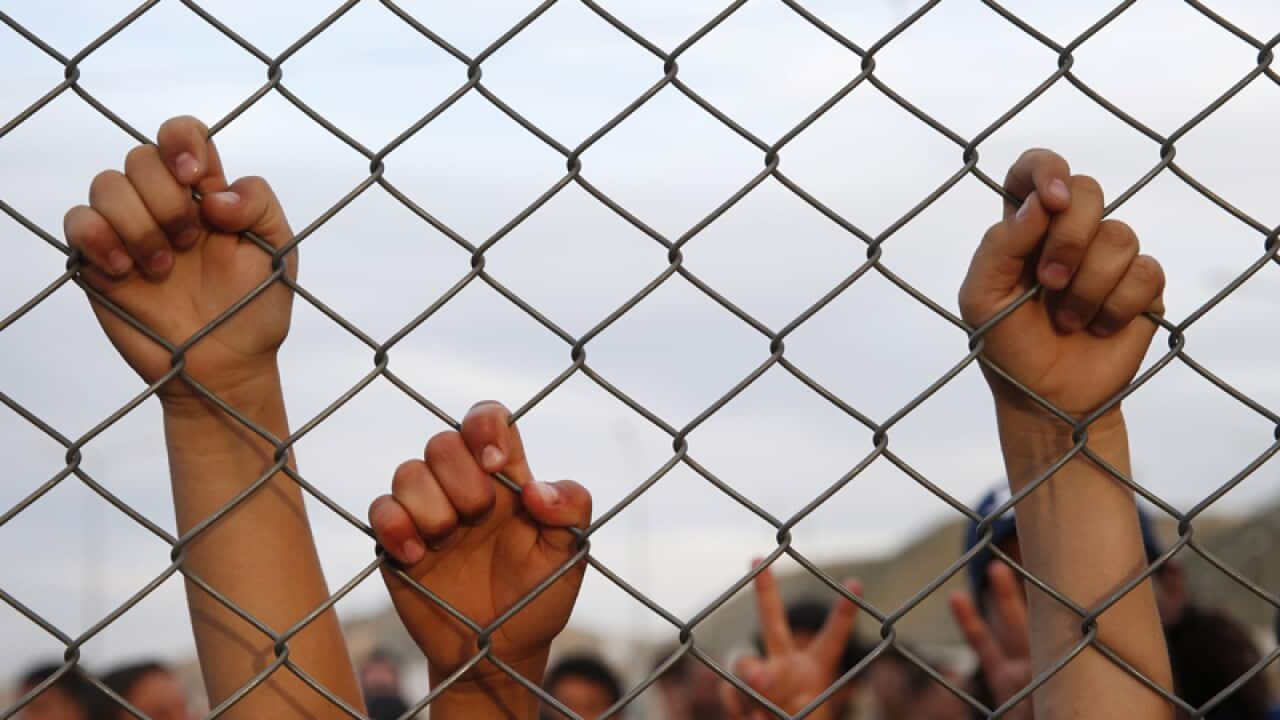The report, a collaboration between a Washington-based research centre and others, suggests hospitals were among the targets.
The researchers have used digital forensic technology to challenge Russia's and Syria's denials.
Their report comes as another, by Human Rights Watch, alleges Syrian forces committed at least eight deadly chlorine-gas attacks.
The report from the Washington-based Atlantic Council draws on detailed satellite imagery, social media, mobile phone calls and eyewitness accounts.
It describes what it calls Russia's "indiscriminate" use of incendiary munitions and cluster bombs, a claim Russia denies.
The Syrian government, together with Russia and Iran, finally broke the resistance in Aleppo after nearly five years, defeating the opposition and displacing much of the city's population.
Maks Czuperski, who led the digital forensic lab for the Atlantic Council report, says the work is the first monitoring of its kind of a war so talked about from every corner, from every street.
"What if we could listen to all the voices in Aleppo talking about what the people are witnessing on the ground? What if we could verify which ones of these accounts are accurate and which ones of them are not?"
He says the lab has tried to recreate the events that unfolded by using digital footprints from mobile-phone messages sent from the area.
"The challenge with observing Aleppo, for many, has been that there's a lot of messages coming out but not all of those messages are genuine. Some of those messages are fake. They're misleading. They're intentionally trying to portray the situation on the ground in a colourful narrative that is not true. They're trying to distort our public, but at the same time mislead our policymakers at the negotiation table with the parties involved in the conflict."
A former United States Special Adviser for Transition in Syria, Frederic Hof, says Russia and Syria falsified information in an attempt to be able to deny what they were doing.
"It stands as an authoritative account of deliberate criminality and conscious efforts to cover it up. It is also inevitably, if not intentionally, a testament of the extent to which our efforts to change American policy fell short. Breaking Aleppo is a chronicle of the methods employed by Russia and the Assad regime, with Iran supporting from the wings, to achieve military victory through terror."
The Atlantic Council report comes as another, from Human Rights Watch, alleges at least eight deadly chlorine-gas attacks by Syrian government forces.
Human Rights Watch director Ole Sovang says, after interviewing survivors and analysing videos and photos, the organisation has reached an alarming conclusion.
"Syrian government helicopters repeatedly dropped chlorine bombs on opposition-controlled parts of Aleppo city during the last few weeks of the offensive to retake the city. So, in November and December, we have documented at least eight attacks that happened in this period."
Human Rights Watch's deputy United Nations director, Akshaya Kumar, says the way the chemical attacks moved in step with the frontline shows they were integral to the offensive.
She says footage reveals telltale evidence of the presence of chlorine.
"This is a large number of attacks in a relatively short period of time. Initially, when chlorine's use was reported in Syria, the delivery mechanism was a barrel bomb, which was filled with gas canisters. However, it now appears that just the gas canisters alone are being used, possibly with a small charge to the nose. If you look at the imagery here, you'll notice that the very similar-looking gas canisters were used in different attacks over this one-month period, and this points to some degree of coordination."
Syria and Russia have repeatedly denied using chemical weapons in the conflict, and the Human Rights Watch report finds no proof of Russian involvement in the chlorine attacks.
But Ole Solvang has called on Russia to act and punish those involved.
"Russia has been strong on the chemical-weapons issue in Syria up until now. It has supported the resolution condemning the use of chlorine, but we also know that Russia was an integral part of the military offensive against Aleppo. So to show that they are not condoning the use of chlorine, to make sure that there could not be any question of complicity, Russia should also support a resolution imposing sanctions on the Syrian military units, on Syrian government officials, responsible for the chlorine attacks."


